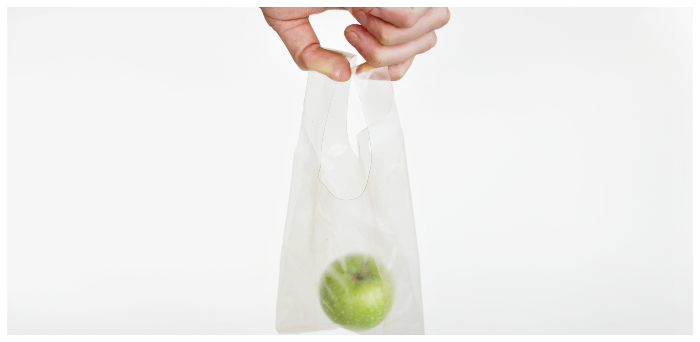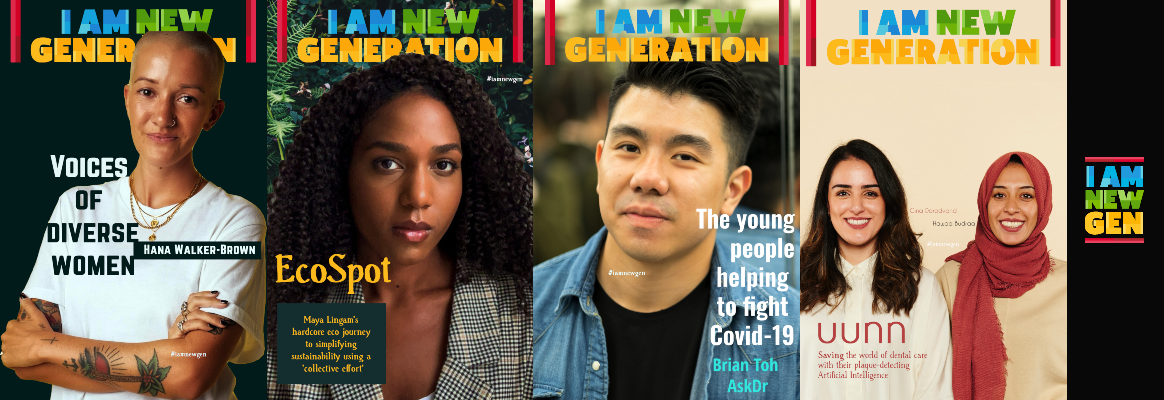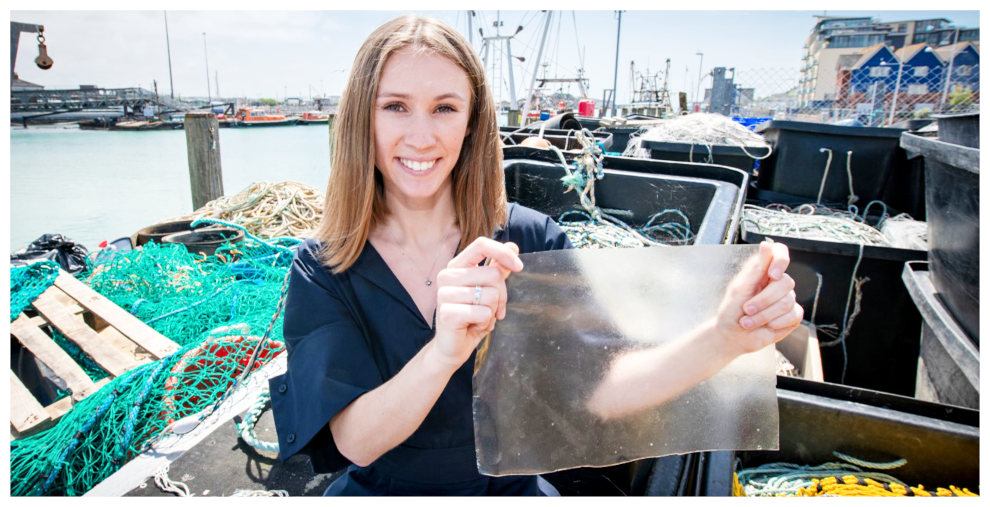Founder of MarinaTex – Lucy Hughes – is the winner of the 2019 International James Dyson award and £30k prize for her biodegradable and compostable material which substitutes plastic with fish waste.
MarinaTex, made from red algae and organic fish waste destined for the landfill, is designed to be a sustainable alternative to single-use plastic, which could replace the use of plastic in food and drink packaging.
Its translucent and flexible sheet material, which feels like plastic, can naturally biodegrade in food waste bins or home composts within four to six weeks.
MarinaTex uses by-products from the fishing industry and this eliminates the need for an existing waste stream for a more circular product lifespan.
Global research figures estimate that ‘8 million metric tons of plastic ends up in the ocean every year‘ and that is ‘equal to five grocery bags per every foot of coastline around the globe‘.
The bioplastic idea, created by Lucy Hughes – a 24-year-old product design graduate from the University of Sussex – was chosen out of the 1,079 global entries received in this 2019 annual James Dyson award, celebrating and challenging young engineering students and graduates ‘to design something that solves a problem‘.

This year marks the 15th year of the James Dyson Award, which also received its highest number of female entrants in the award’s history across all 27 participating countries.
Lucy said: “Plastic is an amazing material, and as a result, we have become too reliant on it as designers and engineers. It makes no sense to me that we’re using plastic, an incredibly durable material, for products that have a life-cycle of less than a day. For me, MarinaTex represents a commitment to material innovation and selection by incorporating sustainable, local and circular values into design.
“I’m so delighted that MarinaTex has been recognised by the James Dyson Award. The invention is still in its infancy and I never thought it would make it to this stage, so it’s really encouraging to have the potential of the material acknowledged by such a prestigious award. I’m excited to now have the chance to undertake further research and development to explore all of the possible uses of MarinaTex, taking into account form, function and footprint.”
Sir James Dyson, Founder, said: “Young engineers have the passion, awareness and intelligence to solve some of the world’s biggest problems…MarinaTex elegantly solves two problems: the ubiquity of single-use plastic and fish waste. Further research and development will ensure that MarinaTex…becomes part of a global answer to the abundance of single use plastic waste.”
The competition’s two runners up are Afflo, created by Anna Bernbaum from Imperial College London, UK – an AI-enabled wearable device that monitors asthmatic symptoms and predicts triggers, allowing users to make data-driven decisions about their asthma management – and Gecko Traxx, created by Ryan Tilley from RMIT University, Australia – a portable and affordable manual wheelchair accessory that enables off-road access.
Images – Courtesy of James Dyson Foundation
More Stories
The Student Startup – Twipes – Tackling Britain’s Costly Eco Issue With ‘Flushable’ Wet Wipes
The 10 Things You Need To Know About Building A Low-Carbon Startup









